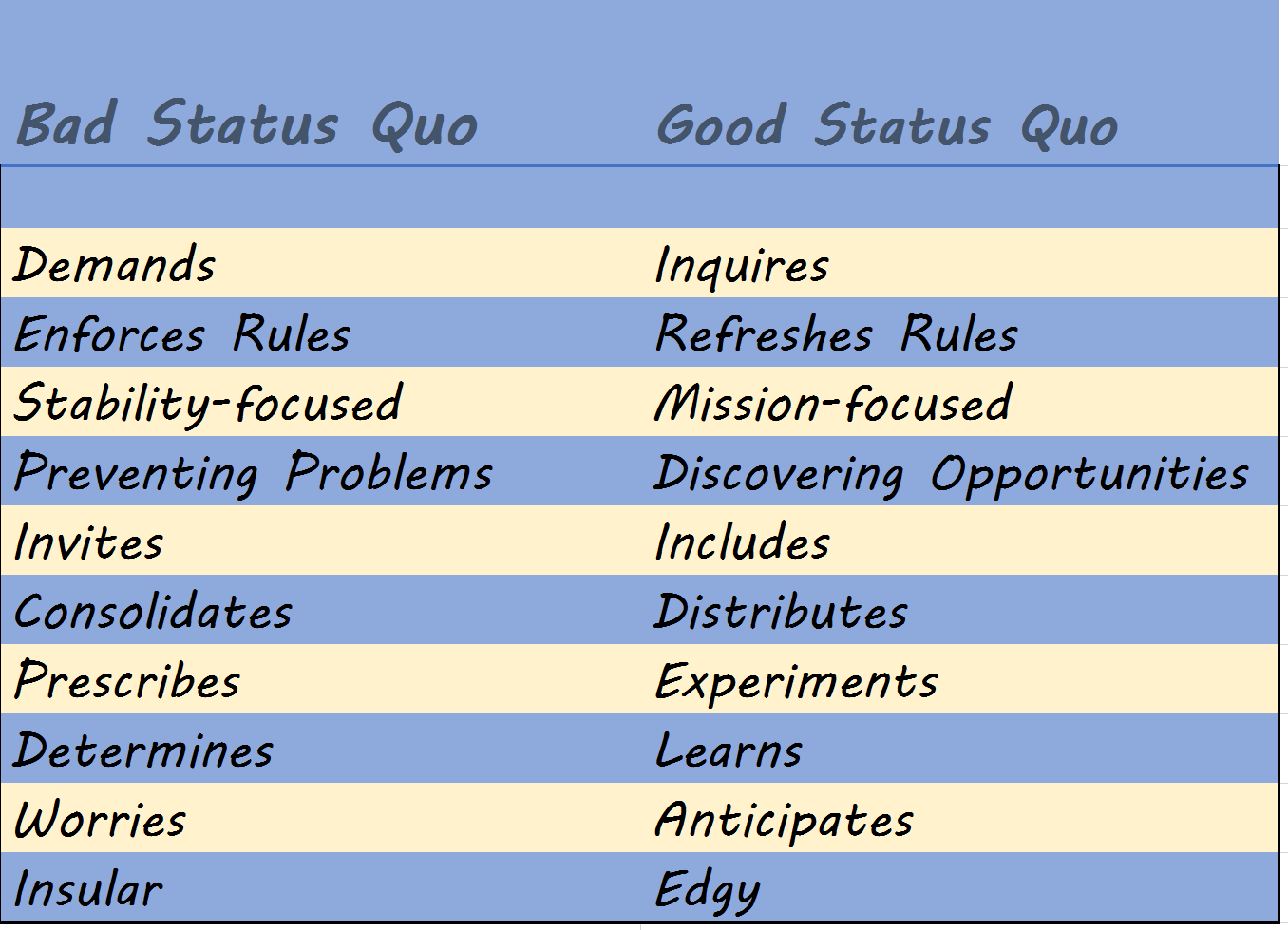Bad Status Quo, Good Status Quo
Rebels have been causing a lot of problems lately. In 2019 protests, some peaceful, many not, occurred in dozens of countries, from Ecuador to Pakistan, from Algeria to Hong Kong. And I’ve read more than one critic charge that the protests have gotten out of hand. Why can’t the protesters be “good rebels” I hear them saying? Why can’t they stand for something and pursue constructive change? And why do they have to destroy property and much more tragically lives?
When the discussion turns to rebels in the workplace, we continue to hear from people who are unhappy with the very use of the term “rebel” to describe people working for change in the workplace. They don’t want to deal with its negative connotations. We’re not rebels; we’re out-of-the-box innovators.
There’s no arguing that some, many are uncomfortable with the term rebel; at CIA, I actually thought of myself as a heretic, not that many would like that term any better. But those who only want good rebels and plucky innovators have to admit the need for essential partners: organizations and leaders who actually are serious about considering significant change.
You can’t operate as a good rebel within an obdurate Status Quo. And you can’t be a plucky innovator if your hierarchy doesn’t care to experiment with new ideas. When countries have more “bad rebels” than good ones and when organizations are peppered with frustrated change agents or—worse—folks who have abandoned their ideas, there’s plenty of blame to go around; the Status Quo and its leaders must accept their share.
Referring to change agents in organizations as rebels makes an important point. Overcoming Newton’s first law of physics requires the use of some type of countervailing energy.
Newton’s First law of Motion
A body continues in its state of rest, or of uniform motion in a straight line, except in so far as it is compelled by external impressed forces to change that state.
We don’t have to posit that organizations are prey to malicious or fearful energies for them to resist change. Their very existence serves as bulwarks against the new. Some energy must be brought to bear to change their trajectory. Which is where rebels come in.
Companies and governments often don’t recognize what needs to change. Business organizations are created to preserve and advance particular methods for making money; governments have standard operating procedures. Neither routinely initiates changes to these methods and procedures. When we ask leadership groups what percentage of their organization’s operations need to adjust every year just to keep up with the changing environment around them, it is often the first time they’ve even considered the question. They don’t have an answer and in those rare cases they do, they don’t have a way or a process to identify what needs to change. Organizations do have processes for what they value—stability.
The first two decades of this century—arbitrary as these calendricals ways of organizing history are—have been full of the popping sounds of systems of government that no longer fit their social circumstances. Most government and political leaders:
First, don’t hear the calls for change. The voices of frustration can’t be heard over the “busyness” of modern economies. And in any case, those who are frustrated can be dismissed as just not appreciating the sophisticated machinations of the Status Quo.
Second, are difficult to persuade of the need for new methods and processes. The ideas of the “good rebels” can’t compare to the stability and track record of the Status Quo.
Finally, blame the rebels for the bad outcomes when their systems do break. When in fact it was the inertia of the Status Quo that necessitated the external, compulsory force.
So, in an effort to take some of the pressure off the rebels—good or bad, I’ve created a Bad/Good Status Quo chart. It’s not just the rebels who need to show some emotional and social intelligence, not to mention common sense. The “powers that be” can also benefit from a good knock on the head. Just like the bad rebels/good rebels’ chart, it’s more useful to think of the categories as a continuum. There are times when stability is important, although not as often as most people think.



